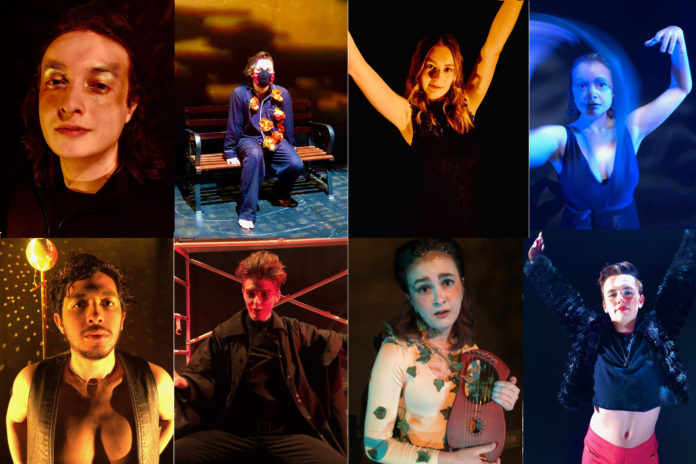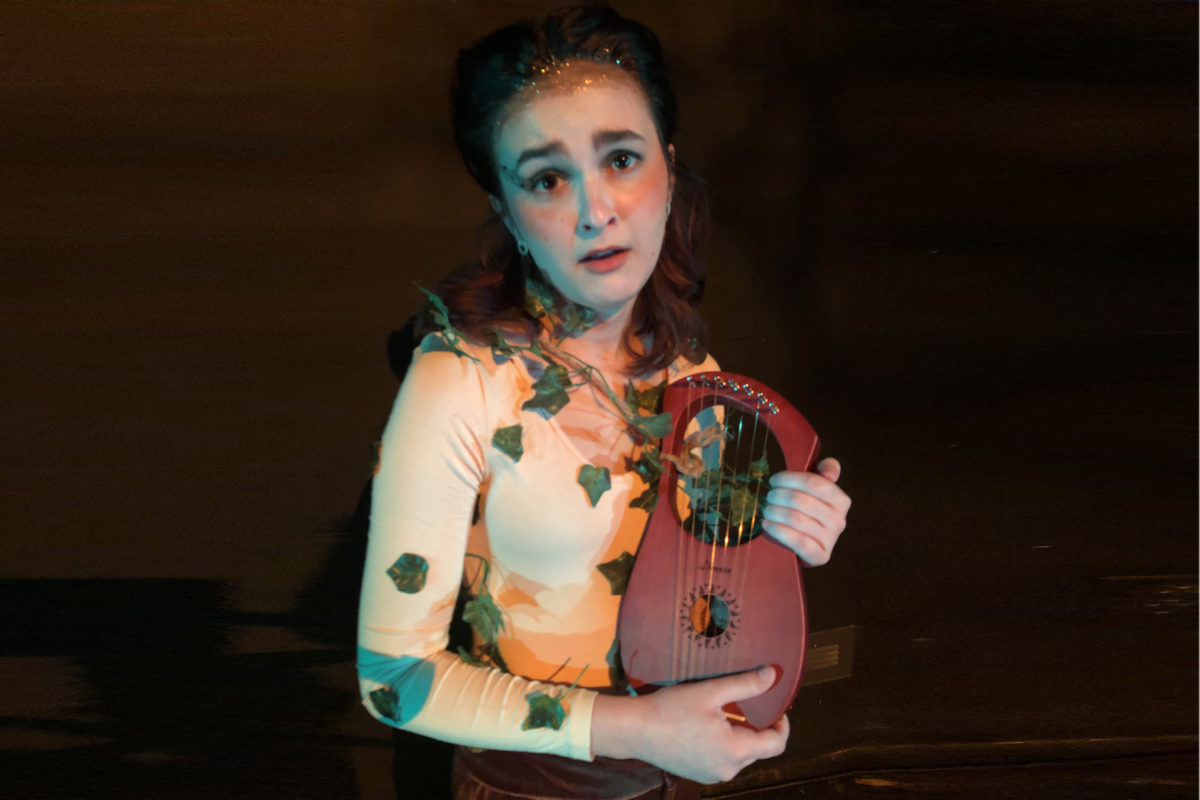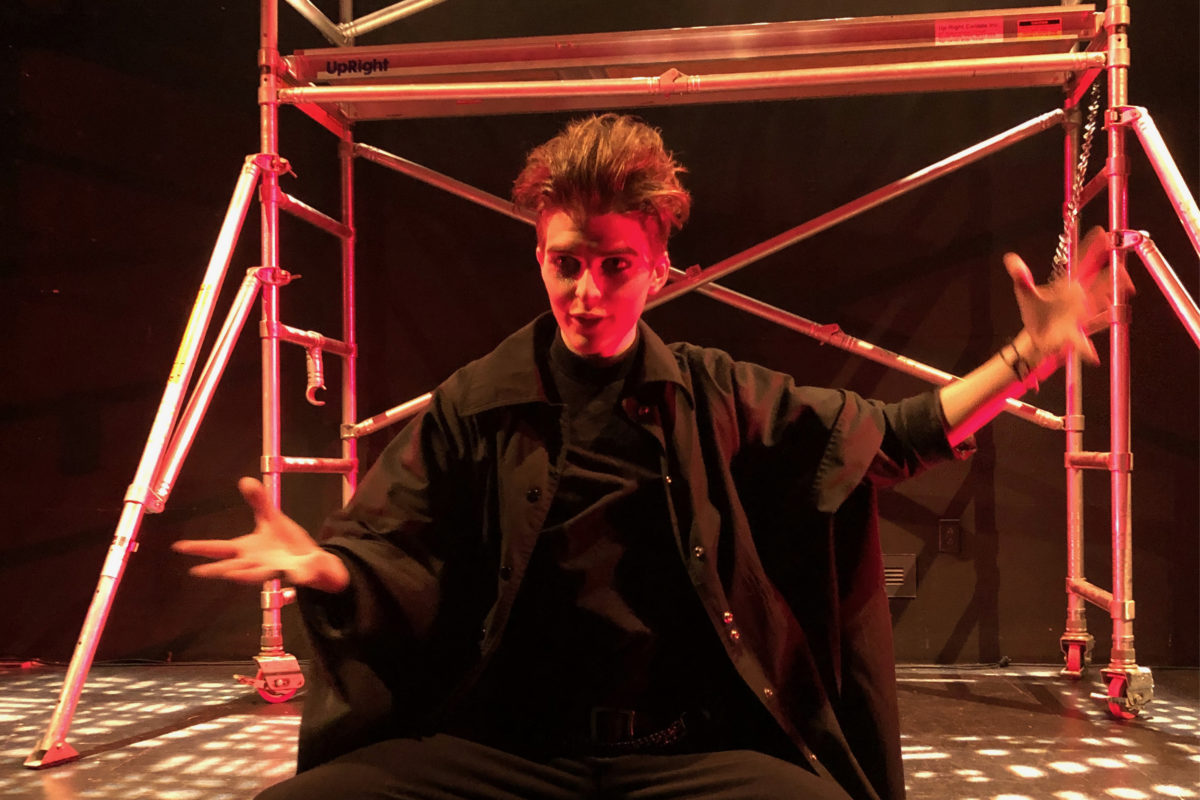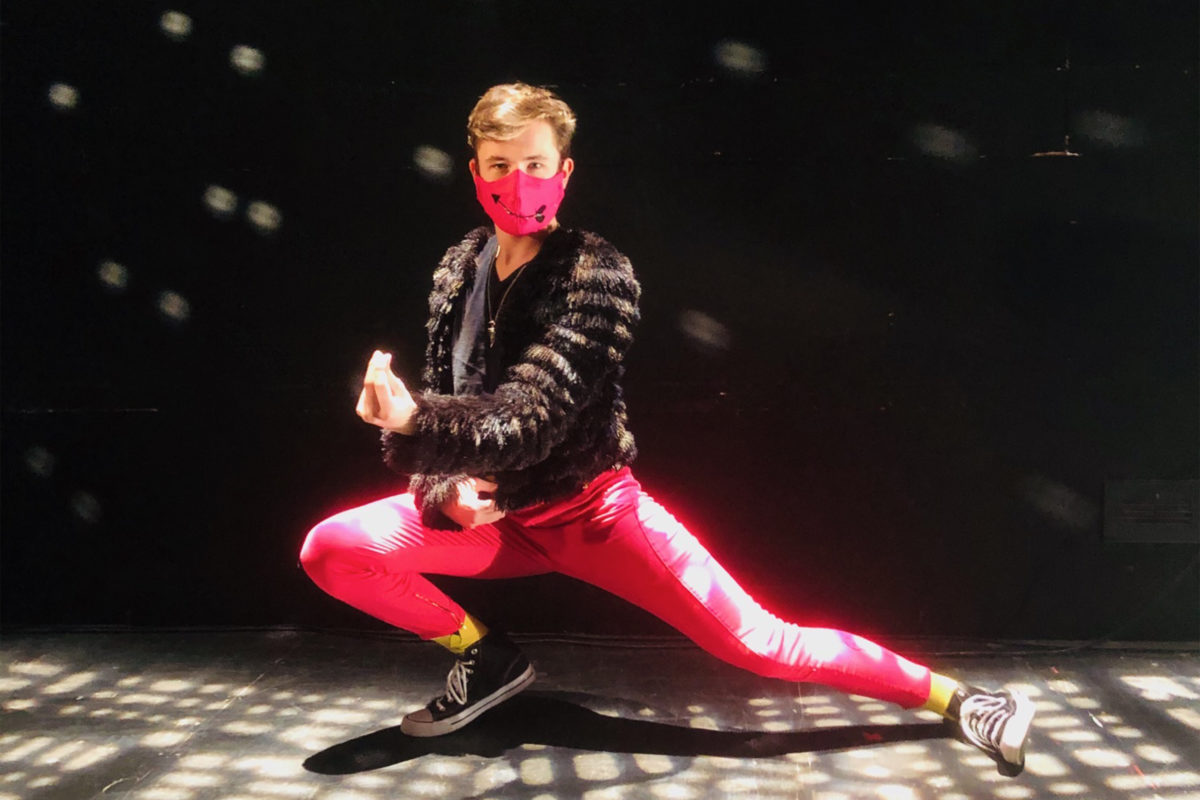
Theatre St. Thomas and Solo Chicken Productions present Foolish Deeds, where Greek mythological characters meet today’s world of isolation.
Lisa Anne Ross, the artistic producer of Solo Chicken and a fine arts professor at St. Thomas University, began directing Foolish Deeds last summer. She then decided to bring more characters alive with TST performers this semester.
Brenna Gauthier, a fourth-year English and drama student, always had a passion for theatre and has been involved with it since high school. Over the past four years, she has worked alongside Ross in every theatre-related course and said it’s been enjoyable to build this product in partnership with her. Gauthier plays the legendary ancient Greek musician and prophet Orpheus, known for their music and performing for others.
“There’s some things [that] are just so important to [the gods and goddesses] that having that taken away – what happens then?” said Gauthier.
Due to the pandemic, the show will not have live performances. The artists decided to use TikTok as a platform to preview the show and introduce their characters with short videos, duets and dances, which are accessible to anyone.

They have only had one recording day and have another one coming up. Though there isn’t a set date, they plan to sell tickets with access to the full monologues when they are complete. There are two rehearsals a week at the Black Box; one is independent with Ross and the other is a group creation process, where actors socially-distance and wear masks. What platform they’ll use to display the show is still undecided and the entire show recordings can be accessed with the ticket.
“It’s really hard when you’re doing partner pieces and making physical movements,” said Gauthier. “We’ve learned how to make these pieces by being together and being able to work off of each other, but now it’s just working off of yourself and what you’re seeing.”
The production is a devised process also known as collective creation. This means the performers work collaboratively, examining and developing ideas to generate theatrical material, which is then structured together.
In this method, the creation process begins with the actors and actresses as they write their monologues, craft their character and form their movements from scratch. The devised theatre focuses on creative development instead of the final product.

Carter Scott, TST president and a fourth-year STU student, said the process is like deciding what the sculpture is going to be when the artist reaches the stone.
“You have to chisel away at it and work with the material. Then eventually, you kind of know the form and everything starts to reveal itself,” said Scott.
Scott has been involved with TST over his four years and is playing Prometheus, the god of fire.
“His name means foresight, something I wish we had to foresee the lockdown and COVID happening,” said Scott.
For most of the TST performers, this is their first experience with a process like this. John Harley, vice-president external for the executive team, said it’s been a flexible and freeing practice.
Harley is a third-year student majoring in English and fine arts. He’s been a part of other TST productions and now plays Eros, the god of love. He said the artists began brainstorming their characters’ personas in the new year and are now completing and perfecting their monologues. They aimed to add humour, as well as a real-life essence, to each one.
“It allows every actor to challenge themselves as both a writer, an actor and almost in a director essence because you’re trying to create your own scenes as well,” said Harley.

Harley said he included comical snippets about the dating app Tinder.
“[Tinder is] the new god of love,” said Harley.
They said the devised route of theatre can be nerve-racking at times, as they’re unsure of the direction it may take, or how they will use their platforms. Still, Scott said it’s about connecting with the spectators, making the outcome rewarding.
Scott said by having a group of actors and creators with diverse experiences of lockdown, it’s creating how everyone has felt the lockdown in a different way.
“Each god or character has something for the audience to relate to.”
